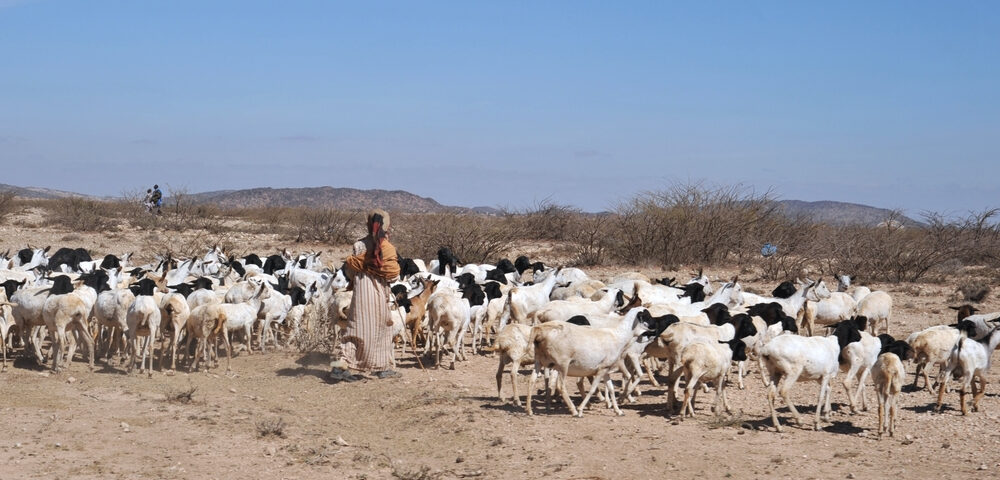
California's Proposition 8 Was Also About Economics
June 30, 2014
What is the Real Natural Gas Trade off?
July 2, 2014I just finished and do recommend The Idealist: Jeffrey Sachs and the Quest to End Poverty. Written by a Vanity Fair journalist, the book is a good read.
On one level, The Idealist is about a dynamic economist who raised $120 million (and then more) for his Millennium Villages Project (MVP). His basic premise was that people in extreme poverty just needed a boost to reach the first step of an African development ladder. After reaching that first step they could take over the climb themselves. His $120 million could provide that boost in 12 African villages.
More than a story, though, the book’s unresolvable dilemmas resounded. Seeing firsthand why it is so tough to eliminate extreme African poverty, you start pondering moral responsibility and methods. I particularly have been thinking about the bottom-up people and the top-downers.
The bottom-uppers were not in the Sachs story. Instead, I discovered Ernesto Sirolli in a TED Radio Hour podcast during one of my walks. He starts his talk with a Zambian village. As a 21-year old aid worker, he introduced Italian seeds to a community in a fertile Zambian valley that had little agriculture. Teaching the locals how to grow tomatoes and zucchini, he was proud of the initial results. The tomatoes were as big as cantaloupes. But then, one night, 200 hippos came out of the river and ate everything. Hippos, the villagers explained, are why we have no agriculture. He inquired why they did not tell him. “You never asked,” they replied.
Because of his Zambian experience, Sirolli says he became a listener who helps people find the resources they need. His development projects start in cafes and around kitchen tables. He avoids community meetings because entrepreneurs do not attend. Asking for the help they need, people use him as a “servant to their passions.”
Sirolli describes his approach in a TED talk:
The Jeffrey Sachs approach is somewhat different. He says he was aware of what people wanted and needed when he designed his Millennium Villages Project. Citing health care, education, water, power, roads, and market-oriented businesses, he identified an intervention network in which the components feed off each other. With enough money to create a development infrastructure, he believes he can not only jumpstart local wealth but also generate scalable achievements that will ripple across Africa.
The Jeffrey Sachs approach is controversial.
In The Idealist, Nina Munk uses 2 African communities to illustrate the foibles and glory of Sachs’s MVP. She documents its auspicious beginnings, the early successes and the subsequent difficulties. She conveys Sachs’s dynamic response to a moral obligation. She implies that everyone meant well but an approach that resembles charity cannot serve as a springboard to self-sufficient growth.
In one hour-long Econtalk segment, Munk describes her visits to the MVP villages. She tells of villagers who are given high-yield seeds to plant but not the necessary storage facilities nor the roads that would facilitate mass marketing their bumper corn crop. She speaks of donated incubators that sit unused. She tells of pipes that are the wrong size.
She also tells of the success of malaria fighting mosquito nets. But then she explains that other African communities without the MVP support have an equal or better record of using the nets. Yes, the malaria death rate is down but is the Sachs project the reason?
And here is where Jeffrey Sachs enters the picture. In an Econtalk response to the Munk interview, he says the data still has to be gathered and reviewed. And, when asked about anti-malaria mosquito nets achieving even more success in non-MVP communities, he attributes the progress to scaling. His intervention spread. He planted seeds that will blossom far from their original roots. Asked if he is top down, he emphatically says no.
Listening to Sachs, I would say he is bringing to Africa an infrastructure that people seem not to have specifically requested. He seems instead to believe rather convincingly that people need a foundation to lift them from devastating poverty. Never quite saying it, he also implies very persuasively that the world needs passionate people to lead us down the moral path. And he reminds us, accurately, that people’s lives in his MVP villages are better.
The Munk book is excellent. The Sachs’ response is fascinating. Add to that the Sirolli video and you have a micro debate about solving extreme poverty.
Our bottom line? Thinking of Sachs and Sirolli, perhaps we have a continuum between the top-downers and the bottom-uppers. But then, at each step along the scale, adding in the relevant cultural, political, social and financial issues, the complexities and dilemmas of sub-Saharan African development become ever more impenetrable.
![econlifelogotrademarkedwebsitelogo[1]](/wp-content/uploads/2024/05/econlifelogotrademarkedwebsitelogo1.png#100878)



